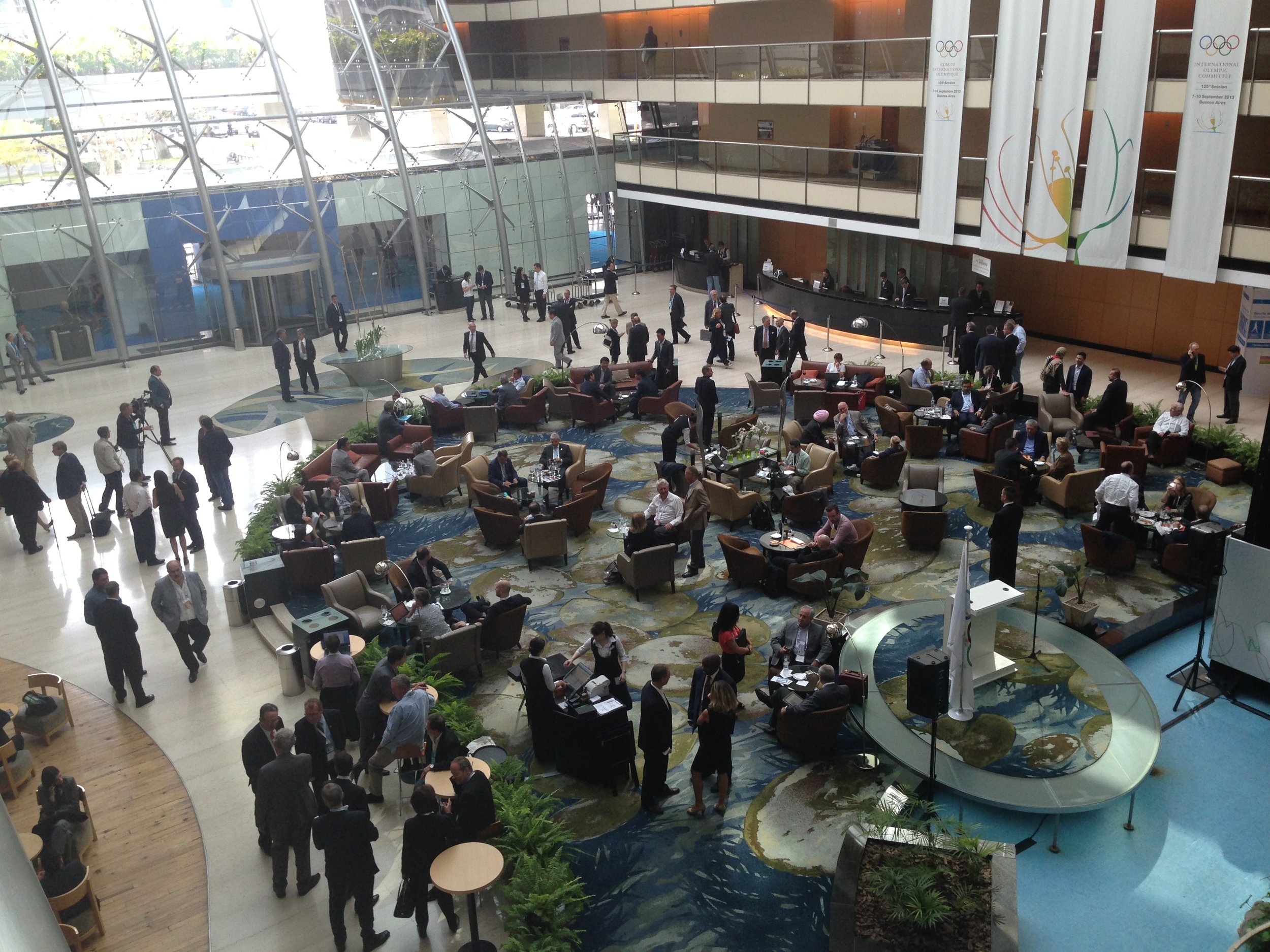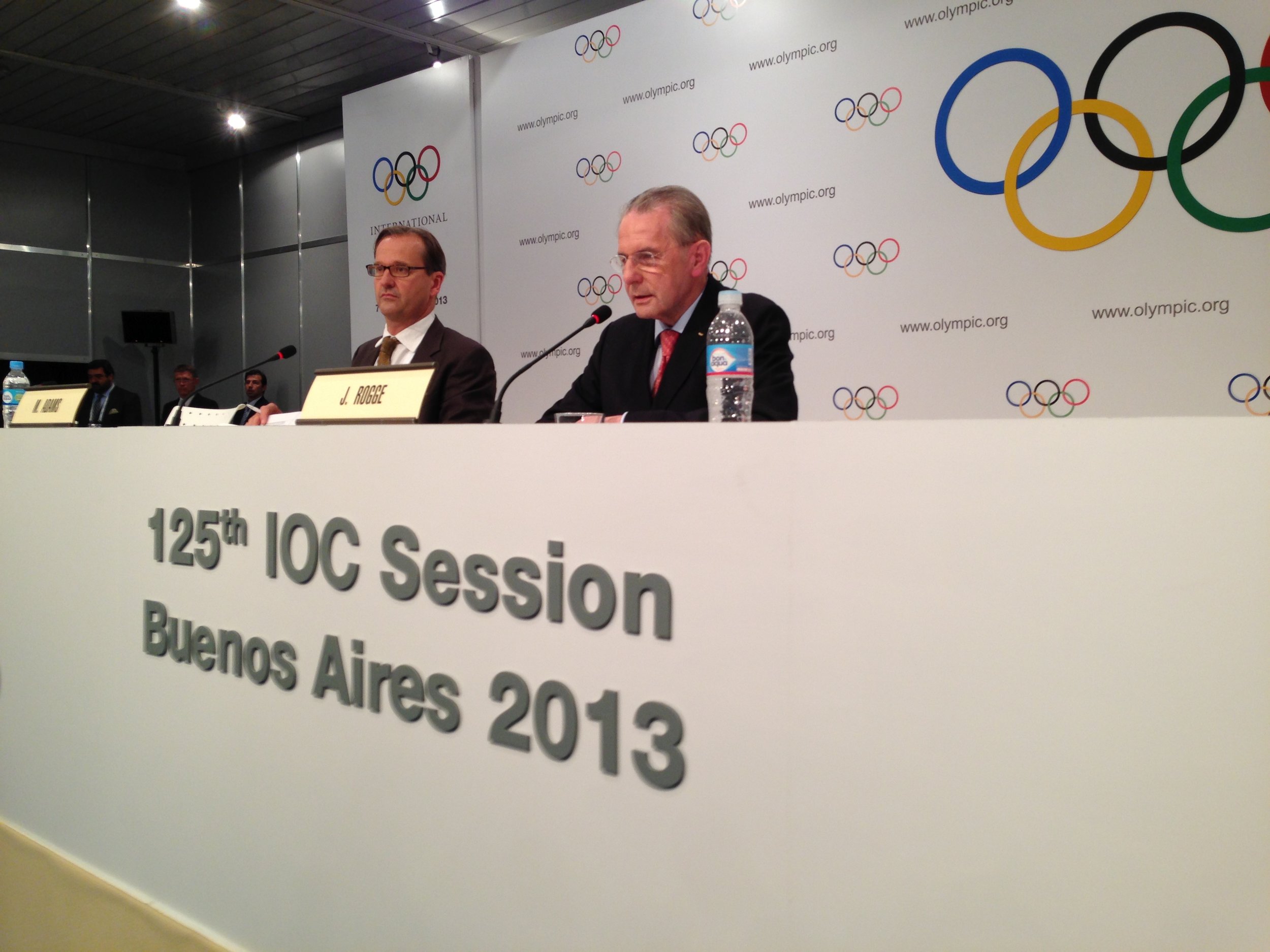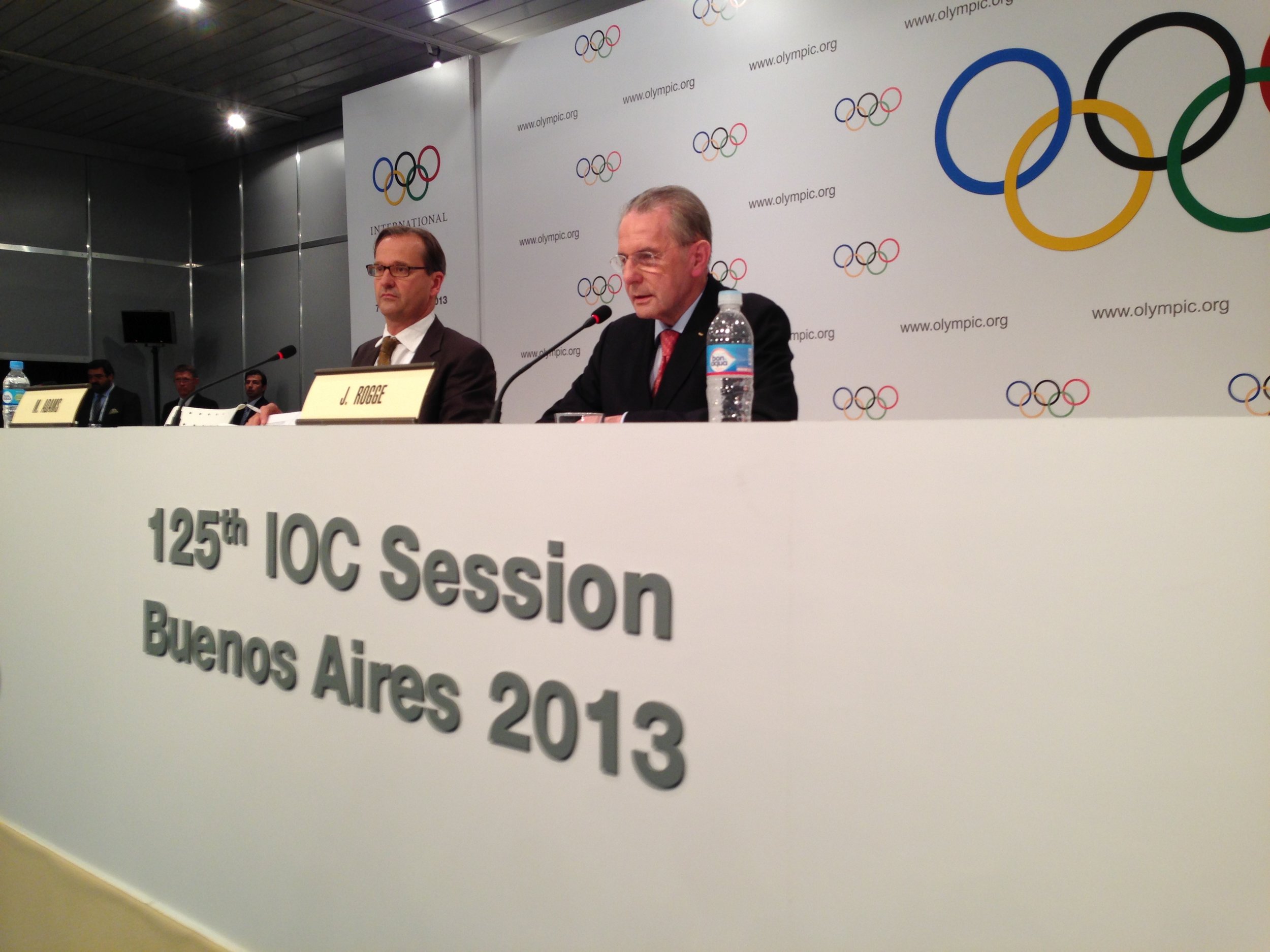BUENOS AIRES -- Kuwait's Sheikh Ahmad al-Fahad al-Sabah laughed the laugh of a man who had accomplished everything here he had set out to do. "The media asked what I thought," he said. "And I said, 'Thank you for making me a hero.' "
This was last Tuesday afternoon here in the lobby of the Hilton hotel. Germany's Thomas Bach had just been elected the ninth International Olympic Committee president. Earlier in the session, wrestling had been put back on the program. Tokyo had won for 2020.
Some moments before, Anita DeFrantz of Los Angeles had won election to the IOC's policy-making election board. This had delighted some. Some found it almost improbable. After all, without the sheikh in her corner, DeFrantz had managed just single-digits in prior campaigns over the past 12 years.
The U.S. Olympic Committee is still a long way from making a decision on a bid from 2024. The costs are staggering. Federal government is extremely unlikely. That said, if DeFrantz can win for the executive board with the sheikh's backing, a 2024 U.S. bid -- which he is known right now to support -- has to at least be considered.
The sheikh riffed some more: "The Americans asked me, 'Are you the most powerful man in sport?' I ask, 'Are you the most powerful country?' "
Then the sheikh got serious: "To ask if I am the most powerful man does a disservice to the power of Dr. Bach." He ticked off Bach's accomplishments: gold medal-winning fencer, IOC member for 22 years, veteran on the executive board, chair of the legal commission, chief of anti-doping investigations, negotiator of European television rights.
"Do not," he said, "do not make it look like Dr. Bach is not the power. He is the power."
Bach, 59, was elected last Tuesday the ninth IOC president.
Over the course of last week in Buenos Aires, meanwhile, the sheikh, head of the Olympic Council of Asia and of the 205-member Assn. of the National Olympic Committees, firmly established himself as the leading man of Olympic influence.
Tokyo, wrestling, Bach -- the sheikh completed a trifecta. Then, for good measure, DeFrantz.
The corollary questions:
How is this happening, and why? And is this concentration of influence in one man good for the Olympic movement?
Some are delighted. Here is a man who says he will get things done. They get done.
At the same time, others -- within and without the movement -- are wary.
And there are those, truth be told, who would would use stronger words still.
The al-Sabah family holds key positions in the Kuwaiti government and military; it has wide-ranging interests in the petroleum industry. The sheikh has made no secret of any of this. His Olympic biography, for instance, recounts his own military service as a Kuwaiti army officer (1985-90). It details, too, how he was OPEC chairman from 2003-05 as well as his country's energy minister and, since 2006, its minister of national security.
A 2008 American embassy cable, disclosed by Wikileaks, proclaims that Sheikh Ahmad is "widely perceived as being corrupt." It offers no evidence for this assertion. It also offers this no-holds-barred compliment about him: "[Sheikh Ahmad] is clever and ambitious and is widely seen as being the only member of the ruling family having both the will and the capacity to rule."
At his very first news conference as president, just hours after being elected, Bach fielded questions from around the room about his relationship with the sheikh, whose support had been well-known.
"You can't win the elections for the IOC president with the support of one person alone," Bach said, adding a moment later and referring to the IOC members, "They are very strong individual personalities. You have to convince them individually. This is what I tried to do in my campaign."
Responding to another question, Bach said, "In all my conversations with the members, there was not a promise being made. This allows me next Tuesday, when I go to Lausanne," meaning IOC headquarters in Lausanne, Switzerland, along Lake Geneva, "to start with a white sheet of paper."
Already, meanwhile, speculation is rampant that the sheikh might be interested in himself running one day for president of the IOC. Bach's term is for eight years, renewable for four more. The sheikh is just 50. There's plenty of time.
What so many want to know about the sheikh is whether is he a force for good, or otherwise.
All journalists learn early on that if one is suspicious one should think like the police or prosecutors do. If it's misconduct or wrongdoing you're looking for, look for evidence of sex, money, drugs, a lust for power or some combination thereof.
The sheikh's hangout in Lausanne is the upscale Beau Rivage hotel, along the lake. His money is for sure good there. But the same can be said of any number of IOC members.
The sheikh threw a party in Buenos Aires at the conclusion of the landmark 125th session. It was a private affair, invitation only at a super-fancy hotel. It probably was a pretty nice deal. A couple days earlier, at the same hotel, the wrestling people threw a really nice celebration party. It for sure was a really nice deal.
The sheik -- and his many, many supporters -- insist there's nothing to be suspicious about.
They say he is completely legit.
In fact, they assert, he is unequivocally committed in the Olympic sphere to best-practices good governance and transparency.
The sheikh took over ANOC last year. That role gives him oversight of the IOC's Solidarity Commission, a program that aims to provide financial, technical and administrative assistance to national Olympic committees, particularly those in developing nations.
Its 2009-13 budget: $435 million, up nearly 40 percent from the 2009-12 cycle's $311 million.
As one senior European IOC member, speaking on condition of anonymity said, "The sheikh is dedicated. The sheikh is active. The sheik is interested. It's a new order."
There endures an air of mystery about Sheikh Ahmad because of the part of the world he is from; because he is a member of his nation's royal family; because he moves in a circle to which access can be tightly controlled; and because he rarely gives on-the-record interviews.
The sheikh moves easily in Arab, western and Asian cultures. He is completely at ease in languages, including English.
It would be a fundamental mistake to underestimate Sheikh Ahmad. He is tireless. He is also keenly intelligent.
The skeptic would say it helps the sheikh considerably, as that formal Olympic bio notes, to have been minister of his country's national security's office for the past seven years. A more benign view would be that one doesn't get to that office in the first instance without first being shrewd and sophisticated about human beings, and what makes them tick.
The sheikh has been an IOC member since 1992; his father had been killed the year before, on the second day of the Iraqi invasion. The son learned a great deal from Juan Antonio Samaranch, the IOC president from 1980 until 2001, particularly about the value of relationships. The outgoing president, Jacques Rogge, referred to him last Monday in a light moment as "someone who is like my younger brother."
This is a significant key to the sheikh's success in moving within the IOC.
It has been said many, many times about the IOC but bears repeating. Within the so-called Olympic family, relationships are everything.
So, too, the sheikh said, in trying to advance any campaign: "Logic."
And, he said: "Credibility."
And: "In the end, winning."
As simple as this seems, it's also elemental, and why so many want to jump aboard with him: "People like to win."
Before the presidential voting, the only issue was not whether Bach would win. It was whether he would steamroll to a first-round victory.
Almost.
In a field of six, Bach needed 47 for victory. He got 43 -- itself a remarkable thing.
In the next round, again needing 47, Bach picked up six more votes, winning easily.
His nearest challenger, Richard Carrión of Puerto Rico, managed 29. Ser Miang Ng of Singapore took six, Denis Oswald of Switzerland five, Sergei Bubka of Ukraine four. C.K. Wu of Chinese Taipei had been eliminated in the first round.
Asked if non-believers ought to believe in him now, the sheikh said, "I think people ought to believe in those numbers."
He made a joke: "I am not competing for a spot in the international journalists' federation."
Then, again, seriously, "There [are] rumors, media, PR," adding a moment later, "In the end you have to accept. I think people are accepting me."











